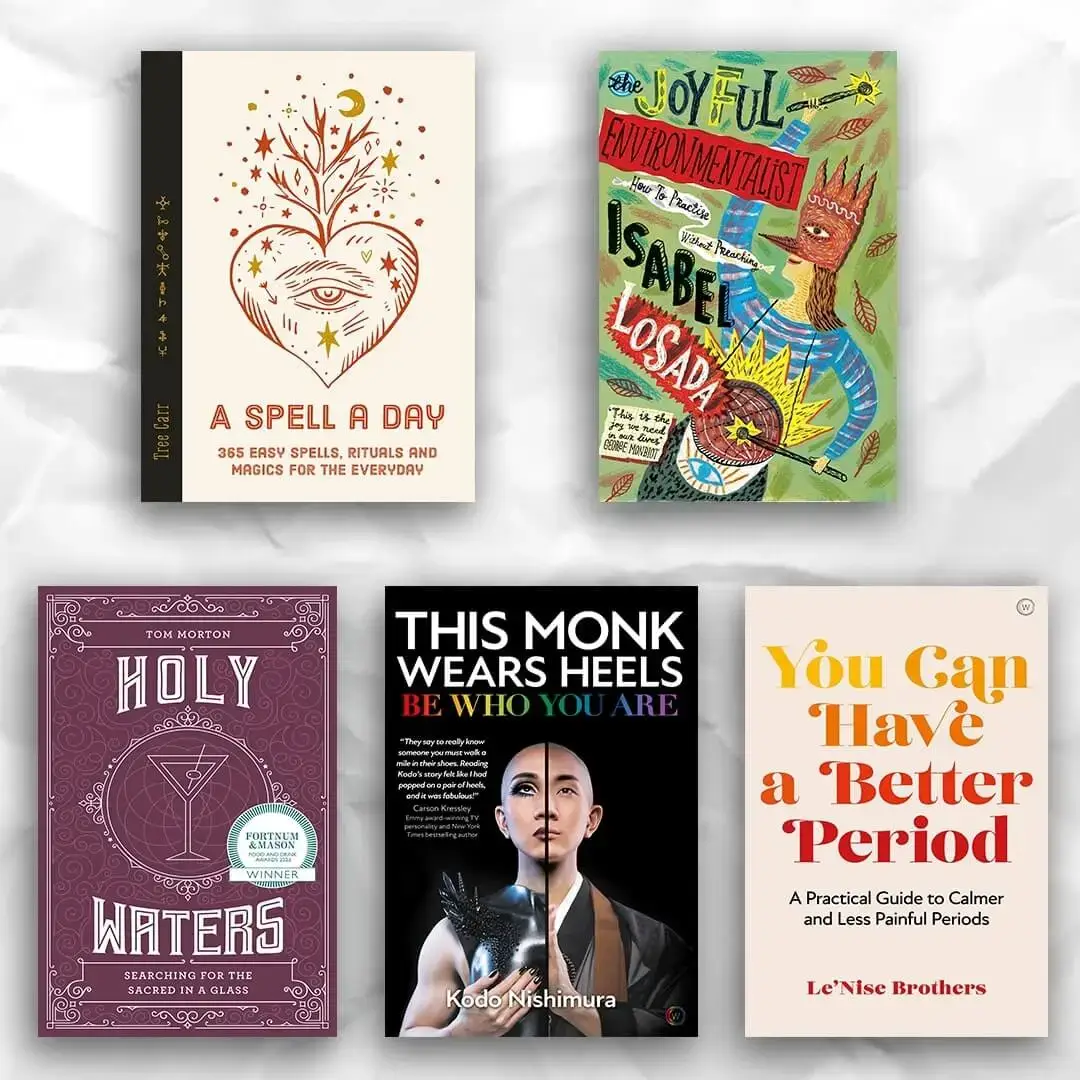
April 26th Briana Pegado at Toppings St Andrews
Come join us at Toppings Books for an evening of inspiration and empowerment with Briana Pegado. Get your signed copy of MAKE GOOD TROUBLE and meet
An Extract from The Grief Handbook By Bridget McNulty
The thing to remember about other people is that they’re trying their best. Even when it doesn’t feel like it. Even when they seem to say or do the exact wrong thing. Nobody is out to hurt your feelings or make you feel worse about your situation (and if they are, you can quickly remove them from your life).
The other thing to remember is that there is no right thing to say during this time. There are some nice things to hear and some unhelpful things to hear, but nobody has the exact right sentence that will magically make you feel better or – better yet – bring your loved one back.
I remember hearing from an old friend I had lost touch with, who messaged months after my mum’s death when she had just heard the news. It was a very sweet gesture, but I didn’t feel I could get into it, so I just replied to the message saying: “Thanks, it’s been very hard.” Her response was: “I’m sure hard doesn’t even begin to describe it”, and I felt such a flare of red-hot rage that she was trying to tell me how I felt and that my choice of words wasn’t appropriate. Now I’m sure, as a sane individual, that you can see that she was only trying to empathize and recognize that it had been an extraordinarily difficult time for me. But there was no right thing to say: nothing that wouldn’t trigger my pain.
On the contrary, the friends I grew closest to during my grief were those who were able to be present with me. Just present. Sitting with me as I cried in a restaurant over pizza and holding my hand. Listening to heart-breaking voice messages and not trying to fix anything. Reaching out with a reminder: “I’m thinking of you and sending love. No need to reply.” Sitting with me in the surprising boredom of grief, as there was nothing new to say but I had to keep saying it anyway. Simple presence is such a gift. It’s a hard one to give.
Here are some things I found helpful to hear:
And here are some I found distinctly less helpful:
I’ve said, “Let me know if you need anything” myself, because it feels like the right thing to say. But it is too vague to be actionable – it puts all the pressure of deciding what is needed, reaching out and asking for it on the one person who has no clarity: the one who is grieving.
Having to make any decision at all, as you know, is often too much to deal with, so we go without asking for help because we don’t have the strength to choose a person and ask them for a favour. It seems simpler to do it all for ourselves.
I felt this a lot, particularly with my kids. It seemed easier just to trudge through every afternoon, rather than asking for a break. Although if you are able to reach out and ask for help, people are so happy to provide it. They are probably sitting there feeling impotent and not knowing what to do, so by asking for something you are actually giving them a gift.
If only there was a checklist…

Bridget McNulty is a writer, content strategist and co-founder of Sweet Life, South Africa’s largest online diabetes community. She lives in Cape Town, South Africa, with her husband, son and daughter, and loves nothing more than a cup of tea and a good book – preferably somewhere green and leafy.

Come join us at Toppings Books for an evening of inspiration and empowerment with Briana Pegado. Get your signed copy of MAKE GOOD TROUBLE and meet

BOOK HERE Walk the Tree of Life to direct knowledge of yourself, the Universe, and the Transcendent in this in-person workshop on the Kabbalah. The

BOOK HERE Paths on the Tree of Wisdom: A course in 21st Century Kabbalah – Mike Bais Mike Bais takes us onwards and upwards

To mark Women’s Health Month, we’re putting on an evening of talks and workshops at the beautiful Vout-O-Reenee’s! BOOK HERE Each £6 ticket gains you
"*" indicates required fields
Watkins Media Limited
Shepperton House unit 11
89 Shepperton Road
London, England
N1 3DF
Watkins Media Limited
Shepperton House unit 11
89 Shepperton Road
London, England
N1 3DF

Get a FREE eBook when you subscribe to our newsletter, and be the first to know about our new releases, exciting events and all the latest news!
"*" indicates required fields